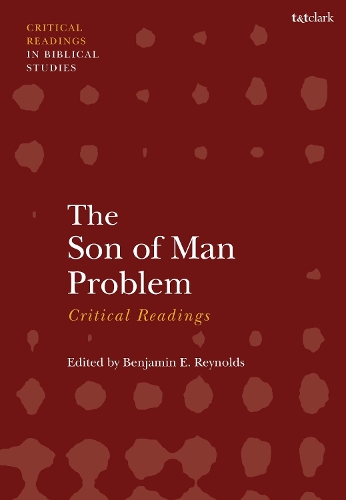
The Son of Man Problem: Critical Readings
(Hardback)
Available Formats
Publishing Details
The Son of Man Problem: Critical Readings
By (Author) Benjamin E. Reynolds
Bloomsbury Publishing PLC
T.& T.Clark Ltd
22nd March 2018
United Kingdom
Classifications
Tertiary Education
Non Fiction
Criticism and exegesis of sacred texts
232.1
Physical Properties
Hardback
600
Width 174mm, Height 248mm, Spine 50mm
1200g
Description
The Son of Man sayings are some of the most contested sayings in the Gospels. They preserve a phrase employed by Jesus to refer to himself, yet the meaning of the saying in its various contexts has been hotly debated for centuries. Some identify allusions to other literature in the bible, including the book of Daniel. Others see it as simply being a strange rendering in Greek of an Aramaic phrase that was relatively commonplace. The history of research on these sayings is here presented by Benjamin E. Reynolds in a volume of critical readings, which provides access to over 50 years of scholarly research. These essays and articles include the most often cited articles that address the various aspects of the Son of Man debate. In addition to these most well-known pieces Reynolds includes carefully selected additional essays that allow readers to trace different developments in the debate and to provide an entry into the waters of the Son of Man Problem and the numerous solutions that have been offered. Each section features an introduction and a section of annotated further readings.
Reviews
This splendid collection provides classic and seminal essays on the Son of Man problem in the gospels. Key contributions from both past and present are here assembled, with an extensive and informative introduction showing how the debate has developed over the years. The book will provide a rich resource for all those interested in one of the most fascinating problems in gospel studies today. * CHRISTOPHER TUCKETT, EMERITUS PROFESSOR OF NEW TESTAMENT STUDIES, UNIVERSITY OF OXFORD, UK *
This selection of twenty-seven of the most influential articles on the meaning of Son of Man, covering 1959 to 2016, is a valuable gift to scholarship. A well-informed general introduction, as well as introductions and annotated bibliographies to each of the four sections, makes the volume an indispensable tool in the future discussion of this central question in New Testament theology, contrasting highly different presuppositions to reach for the elusive and definitive conclusion. * MOGENS MLLER, UNIVERSITY OF COPENHAGEN, DENMARK *
Author Bio
Benjamin E. Reynolds is Chair of the Department of Biblical Studies and Theology, and Associate Professor of New Testament at Tyndale University College, Canada.
